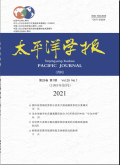太平洋学报2024,Vol.32Issue(6):77-92,16.DOI:10.14015/j.cnki.1004-8049.2024.06.006
全球深海区域军事化发展论析
Development Trends and Impact Analysis of Militarization in Global Deep-Sea Regions
摘要
Abstract
With the rapid development of deep-sea technology and equipment,the intensification of deep-sea resource competition,the lag of deep-sea military control mechanisms,and the need for comprehensive management of the ocean and potential sea battles,major military powers are accelerating the construction of deep-sea combat systems,attempting to turn most of the deep-sea areas from a public domain state into a new one-dimensional battlefield,in order to seek control over deep-sea areas,which will accelerate the de-velopment of militarization in the global deep-sea region.The acceleration of militarization in global deep-sea region will in turn promote a leap in deep-sea technology,thereby driving the improvement of national ocean military strength and comprehensive national strength,and expanding the space for national develop-ment.At the same time,this acceleration will intensify the deep-sea arms race,violating the basic princi-ples and spirit of international ocean peaceful utilization,and greatly increasing the risk of major powers'war.However,due to the significant investment in the development of deep-sea militarization,the potential risks from widespread application of artificial intelligence technology and the harsh geographical and fragile ecological environment of the deep-sea will also pose constraints and challenges to the accelerated develop-ment of deep-sea militarization.关键词
深海作战/深海军备竞赛/深海军事安全/海洋命运共同体Key words
deep-sea operations/deep-sea arms race/deep-sea military security/deep-sea community with a shared future分类
军事科技引用本文复制引用
况腊生..全球深海区域军事化发展论析[J].太平洋学报,2024,32(6):77-92,16.基金项目
本文系国家社会科学基金项目"世界主要国家现行边海防体制研究"(20BGL311)的阶段性研究成果,智强基金项目资助. (20BGL311)

